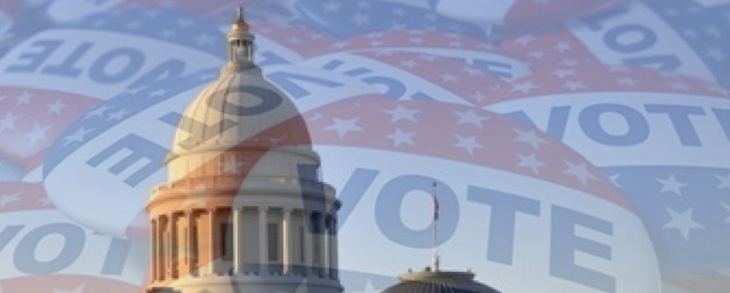Gov. Hutchinson calls out conservative Northwest Arkansas PAC over campaign bounty
by March 13, 2018 9:07 pm 4,355 views

As the campaign season gears up for the 2018 election, Gov. Asa Hutchinson on Tuesday (March 13) offered his first public criticism of a conservative Northwest Arkansas political action group he says does not have the state’s best interests in mind and is seeking to control state lawmakers by funneling thousands of dollars into their campaigns.
While not specifying the conservative political action group by name, Hutchinson later confirmed when speaking with reporters at the monthly meeting of the central Arkansas Political Animals Club that his comments were targeted at Conduit for Action.
Over the past year, the Fayetteville-based PAC has been increasingly involved in supporting right-leaning legislative candidates and promoting conservative policies. According to state business and campaign filings, the group is led by Fayetteville businessman Joe Maynard and attorney Brenda Vassaur Taylor.
Calls made directly to Taylor’s Fayetteville law firm were not immediately returned. Efforts to contact Maynard, who calls himself a “self-made Arkansas small business owner” on Conduit for Action’s website, were unsuccessful.
Hutchinson began his criticism of the 501(c)4 group by saying he prefers to stay out of primary races because of his campaign for governor against GOP challenger Jan Morgan of Hot Springs. However, he said he recently decided to speak out about the Fayetteville political action committee (PAC) and try to encourage voters to elect legislators who are principled, able to listen and not controlled by any particular interest group.
“That is a fair desire for a governor to have (but) right now our state has a special interest group in Northwest Arkansas that is controlled by one person, who is using various ‘conduits’ including a media arm, to pump tens of thousands of dollars in order to control legislators,” he said. “This is not good for our state or the body politic.”
After Hutchinson’s Political Animals’ event, the governor said he decided to speak out against the conservative group that largely supports right-of-center Republican candidates because they are trying to control the legislature by pumping money in legislative races and influencing campaigns through programming on social media, radio and by other means.
“This has built up for some time. We saw this a few years ago and we’ve seen it as a continued operation (as) they are funneling more money into it and expanding media operations,” Hutchinson told reporters. “They are not media reporting, they are media with a mission … trying to control elections.”
THE POLITICAL FIGHT
Hutchinson said the main goal of Conduit for Action and co-founders Maynard and Taylor is to push a “narrow agenda” that isolates the state, limits economic growth and threatens to shut down government.
“So you can expect me to engage in this political fight as needed because we don’t need our legislators controlled by anyone except for the people of their district, and I think that is an important message,” Hutchinson said to applause from the Political Animals crowd of more than 100 people.
After the luncheon, where the governor gave observations on the upcoming campaign season and touched on what he considered key accomplishments in economic development, tax reform, education and other areas, Hutchinson campaign spokesman Jamie Barker sent reporters a copy of a video where Maynard and Taylor are seen defending questions about funding legislative candidates for the 2018 election. In one back-and-forth debate with a questioner calling himself “Mike Wilkinson,” Maynard tells the man that money invested in politics “always gets a return.”
“We know these people, we know who they give to, and we know what they want for giving it. We’ve watched them for years. It’s a public record,” said Maynard, pulling out his wallet. “This money comes from right here, pal, (and) I don’t want a thing for it.”
POPE COUNTY POLITICS
Barker said the Hutchinson campaign received the video in recent days from a person attending a candidate forum in Pope County in late February. Republican legislative candidates Breanne Davis and Robert (Bob) Bailey are in a run-off – held Tuesday (March 13) – for State Senate District 16. In the special election on Feb. 13 for the Senate seat vacated by the death of former State Sen. Greg Standridge, R-Russellville, Davis led Bailey 2,438 to 2,323 with Luke Heffley garnering 854 votes.
According to unofficial results on the Secretary of State’s web site, Davis defeated Bailey by a 4,264-3,451 margin (55-45%) in today’s special election. Davis will face Democrat Teresa Gallegos on May 22.
According to campaign contribution and expenditure reports filed with the Secretary of State’s Office, Bailey received contributions of more than $41,000 in campaign contributions in January, February and March from more than a dozen different PACs affiliated with Conduit for Action. Many of those PACS – AR Manufacturing First, AR People First, Truth in Politics I, II and III, Commerce in Action 1 and 2, and Conservative Women of Arkansas – gave near or up to the maximum amount allowable under state law at $2,700, Bailey’s contribution reports show.
Talk Business & Politics found that nearly all of those PACs that have registered with the Secretary of State’s office have a phone number, business address, resident agent or other business or political affiliation in common with Conduit for Action or one of its closely-aligned political action committees or LLCs.
Over the past few months, Conduit for Action’s website has ramped up its criticism of Gov. Hutchinson and Republican legislative leaders on bellwether conservative issues ranging from tax incentives for jobs recruitment, the governor’s $5.6 billion budget approved last week, to a $180 million proposal to cut income taxes for the state’s top wage earners.
Other complaints by the Northwest Arkansas PAC center around how Hutchinson and top House and Senate leaders are promoting “liberal” fiscal agendas, increasingly wielding more control over the General Assembly and limiting the rights of legislators to speak out or file legislation on their own accord.
